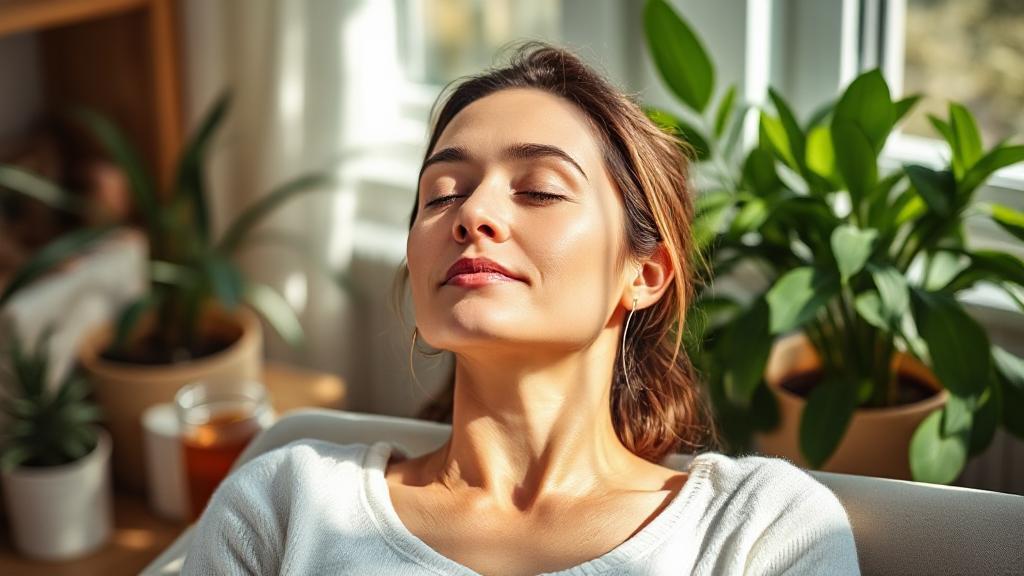Natural Ways to Manage and Relieve Migraines
Migraines are far more than just headaches—they are complex neurological events that can cause intense, throbbing pain, often accompanied by nausea, sensitivity to light and sound, and visual disturbances. Affecting over 1 billion people worldwide, migraines are among the most common and debilitating neurological conditions. While medications are available, many individuals seek natural strategies to manage and relieve migraines, either as alternatives or complements to traditional treatments.
Understanding Migraines and Identifying Triggers
Migraines often have unique triggers for each individual. Common triggers include:
- Stress and anxiety
- Hormonal changes (especially in women)
- Certain foods and additives (aged cheeses, processed meats, MSG, artificial sweeteners)
- Alcohol and caffeine (both overuse and withdrawal)
- Sleep disruptions
- Environmental factors (bright lights, strong smells, weather changes)
Keeping a detailed migraine diary can help you identify your personal triggers. Record when migraines occur, potential triggers, symptoms, and what remedies helped. Digital tools like Migraine Buddy or resources from the American Migraine Foundation can assist in tracking patterns.
Lifestyle Modifications for Migraine Relief
1. Maintain a Consistent Sleep Schedule
Irregular sleep patterns are a major migraine trigger. Aim for 7–8 hours of sleep per night and try to go to bed and wake up at the same time every day, including weekends. For more tips, see the CDC’s guidance on sleep hygiene.
2. Manage Stress Effectively
Stress is a well-known migraine trigger. Incorporate stress-reduction techniques such as:
- Meditation and mindfulness (Headspace)
- Yoga or tai chi
- Deep breathing exercises
- Progressive muscle relaxation
For more on managing anxiety and stress, explore effective strategies for managing anxiety without medication and effective ways to relieve stress quickly.
3. Regular Physical Activity
Gentle exercise like walking, swimming, or stretching can help reduce migraine frequency. However, intense exercise may trigger migraines in some people, so start slowly and listen to your body.
Dietary Approaches and Nutritional Support
1. Stay Hydrated
Dehydration is a common migraine trigger. Aim for at least 8–10 glasses of water daily, and consider using a hydration tracking app.
2. Eat Regular, Balanced Meals
Skipping meals or fasting can provoke migraines. Eat balanced meals at regular intervals to maintain stable blood sugar levels.
3. Anti-Inflammatory Diet
Following an anti-inflammatory eating pattern may help reduce migraine frequency. For more, see effective strategies to reduce inflammation naturally.
4. Identify and Avoid Trigger Foods
Common dietary triggers include:
- Aged cheeses
- Processed meats (nitrates/nitrites)
- Chocolate
- Alcohol (especially red wine)
- Caffeine (overuse or withdrawal)
- Artificial sweeteners (aspartame)
- MSG
An elimination diet, guided by your migraine diary and a healthcare professional, can help pinpoint specific food triggers.
Herbal and Natural Supplements
Several supplements have shown promise for migraine prevention. Always consult your healthcare provider before starting any new supplement.
- Magnesium: 400–600 mg daily; deficiency is common in migraine sufferers.
- Riboflavin (Vitamin B2): 400 mg daily; may reduce migraine frequency.
- Coenzyme Q10 (CoQ10): 100–300 mg daily; supports cellular energy.
- Feverfew: 50–100 mg daily; may help prevent migraines.
- Butterbur: Use only PA-free certified products due to potential liver toxicity.
For more, see top supplements for managing anxiety symptoms, as some overlap with migraine management.
Physical Therapies and Alternative Treatments
Acupressure and Acupuncture
- Acupressure: Applying pressure to points like LI-4 (between thumb and index finger) can provide relief.
- Acupuncture: Shown in studies to reduce migraine frequency and severity.
Massage Therapy
Regular massage can help reduce muscle tension and stress, both of which contribute to migraines.
Temperature Therapy
- Cold therapy: Apply ice packs to the forehead, temples, or neck during an attack.
- Heat therapy: Use warm compresses on the neck and shoulders to relieve tension.
Aromatherapy and Environmental Modifications
- Lavender oil: Inhale or apply diluted to temples.
- Peppermint oil: Apply diluted to forehead and temples.
- Ginger oil: May help with associated nausea.
Always dilute essential oils with a carrier oil before applying to skin.
To reduce environmental triggers:
- Use dim lighting indoors and wear sunglasses outdoors.
- Seek quiet spaces and use earplugs in noisy environments.
- Avoid strong perfumes and chemical odors.
Creating Your Migraine Management Plan
A personalized approach is key. Combine lifestyle modifications, dietary changes, physical therapies, and stress management techniques. Keep a migraine journal to track what works for you.
For more holistic strategies, see natural ways to reduce anxiety and promote calmness and effective strategies for managing chronic pain.
When to Seek Medical Help
Natural remedies can be effective, but consult a healthcare professional if:
- Migraines are frequent, severe, or change in pattern.
- You experience new or unusual symptoms.
- Over-the-counter medications are not effective.
- You have a “thunderclap” headache, fever, stiff neck, confusion, or neurological symptoms.
Conclusion
Managing migraines naturally is a journey of patience and experimentation. By identifying triggers, making lifestyle and dietary changes, and exploring safe natural therapies, many people find significant relief. Work closely with healthcare professionals to develop a comprehensive, individualized plan. Remember, what works for one person may not work for another, so persistence and self-awareness are key.
For further reading on related topics, explore:
- Effective strategies for managing stress in the workplace
- Natural ways to quit smoking without medication
- Natural ways to lower blood pressure without medication
- Effective strategies for managing stress during pregnancy
Remember: Natural approaches often work best as part of a comprehensive treatment plan developed with your healthcare provider.
